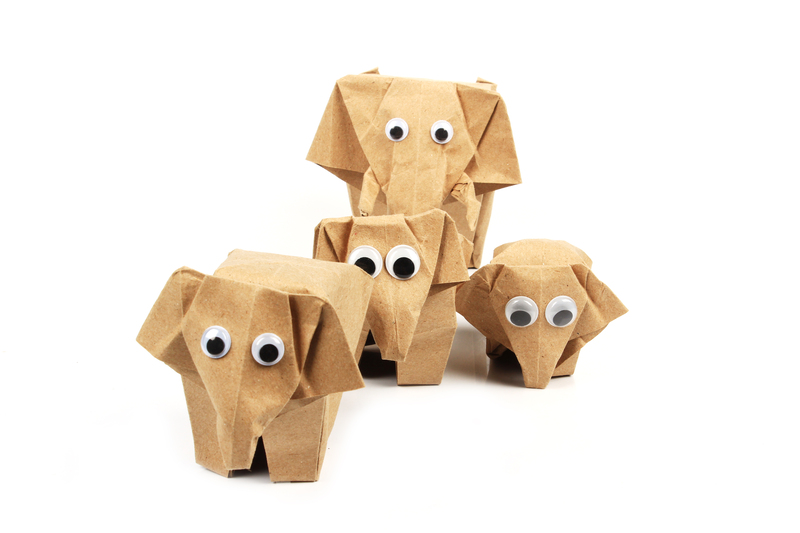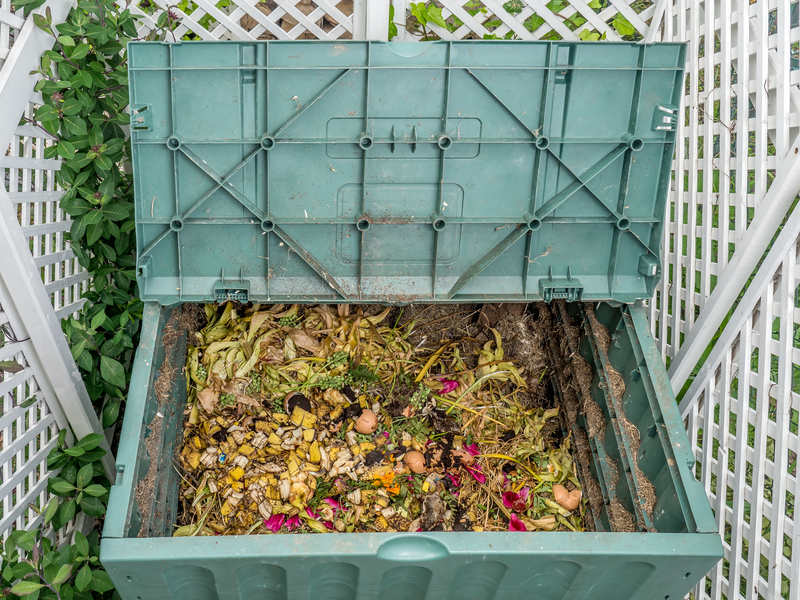Green Habits: Family Waste Reduction Strategies
Posted on 30/05/2025
Green Habits: Family Waste Reduction Strategies
Environmental sustainability has become a critical concern in today's world, and the responsibility to implement eco-friendly habits often starts at home. Families play a pivotal role in waste reduction, encouraging values and actions that can lead to significant positive impacts. Adopting green habits within the household not only benefits the environment but also fosters a sense of responsibility and unity among family members. This article delves into various family waste reduction strategies that can be easily integrated into daily routines.
Understanding the Importance of Waste Reduction
Before diving into specific strategies, it's essential to understand why waste reduction is so crucial. Waste contributes significantly to pollution, landfill overflow, and the depletion of natural resources. By minimizing waste, families can help reduce greenhouse gases, save energy, and conserve resources, ultimately leading to a more sustainable future. Moreover, adopting green habits often results in financial savings and can improve the overall health and well-being of the household.

Adopt the 5 R's: Refuse, Reduce, Reuse, Recycle, and Rot
The foundation of waste reduction is rooted in the 5 R's, a straightforward and effective guideline for minimizing waste:
- Refuse: Avoiding unnecessary items and single-use plastics.
- Reduce: Cutting down on the amount of waste produced.
- Reuse: Finding new uses for items instead of discarding them.
- Recycle: Properly sorting and sending recyclable materials to be processed.
- Rot: Composting organic waste to enrich soil.
Implementing Waste Reduction Habits in the Kitchen
Households generate a significant portion of their waste in the kitchen. Therefore, implementing green habits in this area can lead to substantial waste reduction. Here are some strategies:
Smart Shopping
Plan meals in advance and create a shopping list to avoid impulse purchases, which often lead to food waste. Opt for products with minimal or recyclable packaging, and buy in bulk when possible to reduce packaging waste.
Proper Food Storage
Store food in airtight containers to extend its freshness and prevent spoilage. Use glass or reusable silicone bags instead of single-use plastic. Label items with purchase dates to ensure older items are used first.
Composting
Set up a compost bin for food scraps such as fruit peels, vegetable stems, and coffee grounds. Composting not only reduces waste but also creates nutrient-rich soil for gardening.
Reduce Single-Use Items
Eliminate the use of single-use plastics like disposable cutlery, plates, and straws. Invest in reusable alternatives such as stainless steel or bamboo utensils, and cloth napkins instead of paper ones.
Green Habits in Household Cleaning
Household cleaning generates a considerable amount of waste, primarily through plastic packaging and harmful chemicals. Here's how to make cleaning routines more sustainable:
DIY Cleaning Products
Create homemade cleaning solutions using natural ingredients like vinegar, baking soda, and essential oils. These alternatives are effective, cost-efficient, and reduce reliance on commercial products packaged in plastic.
Reusable Cleaning Supplies
Replace disposable cleaning wipes and paper towels with reusable cloths or microfiber towels. Use washable mop heads and avoid single-use mop pads.
Eco-Friendly Packaging
When purchasing cleaning supplies, choose products with eco-friendly packaging, such as cardboard, glass, or refillable containers. Support brands that prioritize sustainability and transparency.
Reducing Waste in Personal Care
Personal care products often come in plastic packaging and contribute significantly to household waste. Consider these eco-friendly alternatives:
Solid Personal Care Items
Switch to solid shampoo and conditioner bars, which eliminate the need for plastic bottles. Opt for bar soap instead of liquid soap in plastic dispensers.
Reusable and Sustainable Products
Use reusable makeup remover pads, bamboo toothbrushes, and stainless steel razors. Avoid single-use items like cotton swabs and opting for biodegradable versions.
Minimalist Approach
Adopt a minimalist approach to personal care by using multipurpose products. For example, coconut oil can serve as a moisturizer, makeup remover, and hair conditioner, reducing the need for multiple packaged products.
Engaging Children in Waste Reduction
Involving children in waste reduction practices instills lifelong habits and teaches the importance of environmental stewardship. Here are some ways to engage younger family members:
Educational Activities
Organize educational activities that teach children about recycling, composting, and the impact of waste. Use games, stories, and crafts to make learning fun and interactive.
Lead by Example
Children learn by observing, so set a positive example by adopting green habits yourself. Involve them in everyday tasks like sorting recyclables, composting, and using reusable bags when shopping.
Eco-Friendly Toys and Supplies
Choose toys and school supplies made from sustainable materials. Encourage kids to take care of their belongings to avoid unnecessary replacements.

Community Involvement and Advocacy
Beyond individual efforts, families can contribute to broader community initiatives and advocate for waste reduction policies:
Participate in Local Programs
Join local recycling programs, community clean-up events, and composting workshops. Support local farmers' markets and businesses that prioritize sustainability.
Advocate for Change
Encourage schools, workplaces, and local governments to adopt eco-friendly practices. Participate in campaigns that promote waste reduction policies and raise awareness about environmental issues.
Conclusion
Reducing waste as a family involves making conscious choices and adopting sustainable practices in daily life. By understanding the importance of waste reduction and implementing strategies like the 5 R's, smart shopping, composting, using reusable products, engaging children, and participating in community initiatives, families can significantly diminish their environmental footprint. These green habits not only benefit the planet but also foster a sense of responsibility and unity. Through collective effort and commitment to sustainable living, we can work towards a healthier, more sustainable future for all.

 020 3744 5712
020 3744 5712













